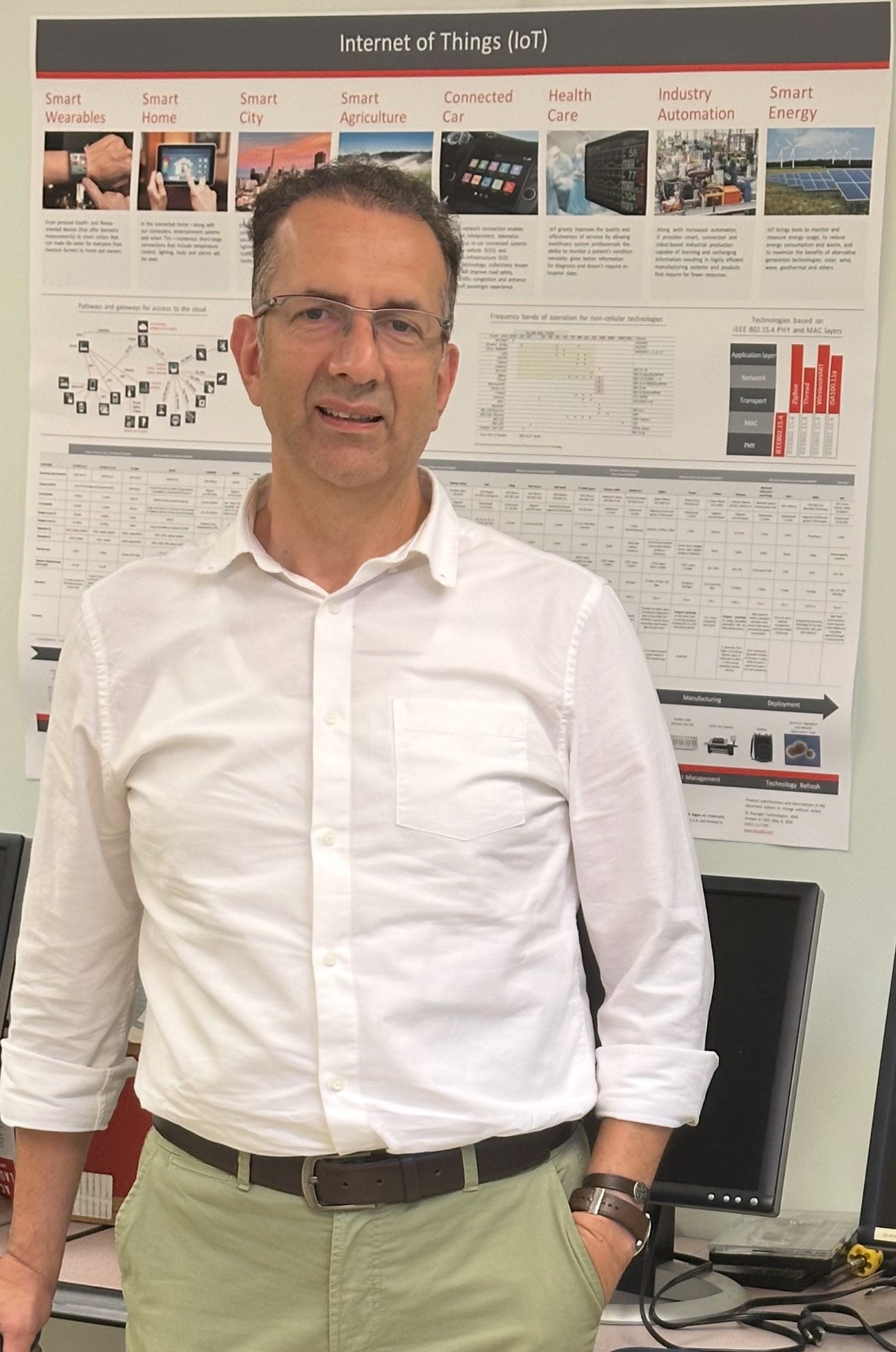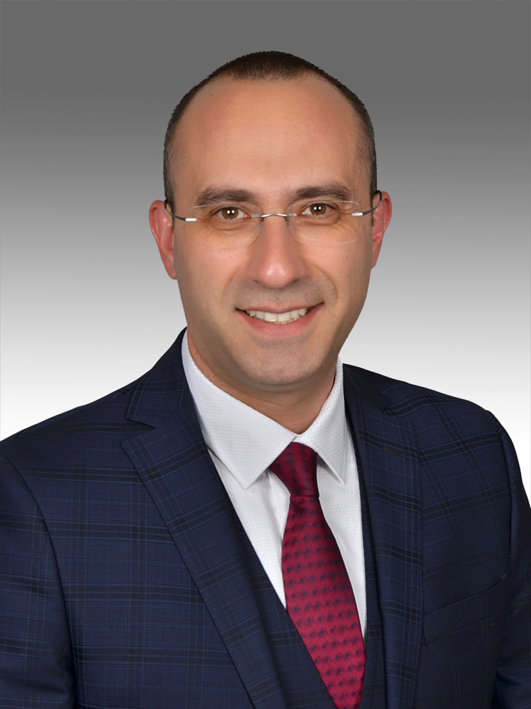Talk Title: Smarter Farms, Smarter Health: Harnessing IoT and AI
Abstract: The Internet of Things (IoT) and Artificial Intelligence (AI) are redefining both agriculture and health care. In farming, connected sensors and intelligent analytics drive precision agriculture, monitoring weather, soil, crops, pests, and disease to boost productivity, reduce inputs, and build resilience to climate change. In health care, IoT-enabled imaging systems and edge AI are transforming diagnostics, enabling earlier disease detection, real-time monitoring, and data-driven clinical decisions.
This keynote explores how open, interoperable IoT platforms and AI-powered insights can overcome fragmented technologies and unlock scalable innovation across sectors. Drawing on real-world cases, from solar-powered biodiversity and pest monitoring to AI-augmented medical imaging, it highlights how connected intelligence can create smarter farms, smarter health systems, and a more sustainable future.
About the Speaker

Dr. Esteve Hassan is an Associate Professor in the Jodrey School of Computer Science at Acadia University, where he leads innovative research and instruction in the fields of the Internet of Things (IoT), cyber‑physical systems, and machine learning. He earned his Ph.D. in Electronic and Computer Engineering from University College Cork (UCC)-Ireland, following an M.Eng. and B.Sc./M.Sc. in the same discipline. He completed two years of postdoctoral studies at the Tyndall National Institute at University College Cork, followed by another two years at Toronto Metropolitan University (TMU). He also worked as an Assistant Professor at both Brandon and McMaster Universities in Canada.
Dr. Hassan’s research focuses on designing low-power, energy‑harvesting sensor modules, FPGA-optimized digital prototyping, and predictive analytics for IoT and Industry 4.0 applications. His scholarly work has resulted in multiple peer-reviewed publications, including recent contributions to anomaly detection in SELinux security policies. He is a former Canada Industry Chair also a valued member of the NSERC Scholarships and Fellowships Review Committee for Computing Sciences, reflecting his national standing.
Dr. Hassan teaches courses in embedded systems, data analytics, and machine learning, and supervises undergraduate and graduate students on applied research projects leveraging wireless sensor networks and smart automation. His collaborative efforts span academia and industry, enhancing real-world impact through technology-driven solutions.
Talk Title: Use of New Technologies in Robotic Prostate Cancer Surgery
Abstract: Prostate cancer is one of the most frequently diagnosed in men and also a leading cause of morbidity and death. Luckly, this disease is increasingly being diagnosed in an early stage enabling curative treatment options.
Surgery is one of the most frequently elected treatment options in localised prostate cancer treatment. In the western world and developed countries, robotic prostate cancer surgery is most frequently applied due its many advantages including decreased complications, decreased blood loss, shorter duration of hospital stay, increased oncologic outcomes, better preservation of nerves and vessels leading to better continence and erectile function outcomes.
Depending our own experience, in order to further improve outcomes of robotic surgery we can use additional technologies:
I. Fluorescence-guided extended pelvic lymphadenectomy during robotic radical prostatectomy
Our results show that ICG-guided lymph node dissection might increase identification and removal of metastatic lymph nodes (Özkan A et al., J Robot Surg, 2023).
II. Virtual reality tumor navigated robotic radical prostatectomy:
Our results show that 3D reconstructed virtual reality models by using prostate MRI and Ga68 PSMA-PET/CT images can be accurately prepared and effectively applied during robotic surgery as a useful tool for tumor navigation (Canda AE et al., BJUI Compass, 2020).
III. Intraoperative frozen section via NeuorSAFE:
Our results suggest that NeuroSAFE technique led to more preserved neuro-vascular bundles with less postive surgical margins (Köseoglu E et al., 2023, Clin Genitourin Cancer).
About the Speaker

Prof. Canda has been primarily focused on robotic urology since 2009. He has an experience of more than 1000 robotic urology procedures. He has used Intuitive Da Vinci S, Si, X and Xi surgical robotic systems. Very recently, he has started to use Medtronic Hugo RAS system. He was granted numerous awards especially in congresses held by the European Robotic Urology Society (ERUS). He is a past ERUS board member and also a member of ERUS scientific working group. He has authored numerous papers, book chapters and studies on the robotic urology. He took role and co-authored in many international multi-center trials (ERUS & IRCC). Prof.Canda is heavily involved in robotic urology training and has served as a course faculty in many robotic urology courses in international and national setting. He educated the first & second urologists in his country within the scope of the ERUS curriculum robotic prostate cancer surgery education program. He is also serving as an editor, chapter editor, member of scientific committee and reviewer in many international and local scientific journals. Prof.Canda is a member of many scientific societies including EAU, AUA, SIU, Endourological Society, SRS, and national urology associations. He is the founding member of IURES and SERUS.










